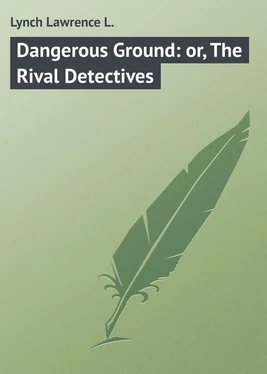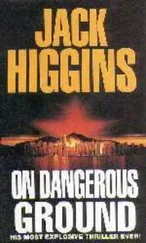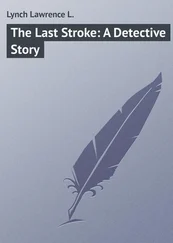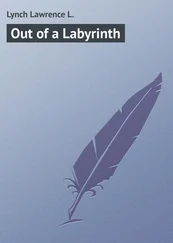Lawrence Lynch - Dangerous Ground - or, The Rival Detectives
Здесь есть возможность читать онлайн «Lawrence Lynch - Dangerous Ground - or, The Rival Detectives» — ознакомительный отрывок электронной книги совершенно бесплатно, а после прочтения отрывка купить полную версию. В некоторых случаях можно слушать аудио, скачать через торрент в формате fb2 и присутствует краткое содержание. Жанр: foreign_prose, на английском языке. Описание произведения, (предисловие) а так же отзывы посетителей доступны на портале библиотеки ЛибКат.
- Название:Dangerous Ground: or, The Rival Detectives
- Автор:
- Жанр:
- Год:неизвестен
- ISBN:нет данных
- Рейтинг книги:4 / 5. Голосов: 1
-
Избранное:Добавить в избранное
- Отзывы:
-
Ваша оценка:
- 80
- 1
- 2
- 3
- 4
- 5
Dangerous Ground: or, The Rival Detectives: краткое содержание, описание и аннотация
Предлагаем к чтению аннотацию, описание, краткое содержание или предисловие (зависит от того, что написал сам автор книги «Dangerous Ground: or, The Rival Detectives»). Если вы не нашли необходимую информацию о книге — напишите в комментариях, мы постараемся отыскать её.
Dangerous Ground: or, The Rival Detectives — читать онлайн ознакомительный отрывок
Ниже представлен текст книги, разбитый по страницам. Система сохранения места последней прочитанной страницы, позволяет с удобством читать онлайн бесплатно книгу «Dangerous Ground: or, The Rival Detectives», без необходимости каждый раз заново искать на чём Вы остановились. Поставьте закладку, и сможете в любой момент перейти на страницу, на которой закончили чтение.
Интервал:
Закладка:
“Dear God, please take care of a little girl whose mamma has gone to Heaven. Keep her from sin, and sickness, and danger. Make the dark as safe as the day, and don’t let her be afraid, for Jesus’ sake. Amen.”
Something like a smothered imprecation dies away in the throat of the listener, and then she says, in honeyed accents:
“That’s a very nice little prayer, and your new mamma is a very fine lady. When you come back from your ride in Cinderella’s carriage, you can tell your new mamma all about it.”
“Oh! how nice!”
“It will be charming. Come into the conservatory, dearie. I think we can see Cinderella’s lamps from there.”
With the confidence born of childish innocence, the little one places her hand in that of Mother Goose, and is led away.
The conservatory is all aglow with light and color and rich perfume, and it is almost tenantless. The broad low windows are open, and a narrow balcony, adorned with tall vases and hung with drooping vines, projects from them scarce three feet from the ground.
Out upon this balcony, and close to the railing, the child follows the old woman confidently. Then, as she peers out into the night, she draws back.
“It’s – very – dark,” she whispers.
“It’s the light inside that makes it seem so dark, dearie. Ah! I see a glimmer of Cinderella’s lamp now; look, child!”
Stooping quickly, she lifts the little one and seats her upon the railing of the balcony. Then, as the child, shading her eyes with a tiny hand, attempts to peer out into the darkness, something damp and sickening is pressed to her face; there is an odor in the air not born of the flowers within, and Daisy Warburton, limp and unconscious, lies back in the arms of her enemy.
In another moment, the woman in the garb of Mother Goose has dropped from the balcony to the ground beneath, and, bearing her still burden in her arms, disappeared in the darkness.
And as her form vanishes from the balcony, a city clock, far away, tolls out the hour: midnight .
At this same hour, with the same strokes sounding in their ears, a party of men sally forth from the X – street Police station, and take their way toward the river.
They are policemen, mostly dressed in plain clothes, and heavily armed, every man. They move away silently like men obeying the will of one master, and presently they separate, dropping off by twos and threes into different by-ways and obscure streets, to meet again at a certain rendezvous.
It is the Raiding Party on its way to the slums, and, contrary to the hopes of the Chief of the detectives and the Captain of the police, it is led, not by Dick Stanhope, but by Van Vernet.
Contrary to all precedent, and greatly to the surprise of all save Vernet, Richard Stanhope has failed to appear at the time appointed; and so, after many doubts, much hesitation, and some delay, Van Vernet is made leader of the expedition.
“I shall send Stanhope as soon as he reports here,” the Chief had said as a last word to Vernet. “His absence to-night is most reprehensible, but his assistance is too valuable to be dispensed with.”
Mentally hoping that Stanhope’s coming may be delayed indefinitely, Van Vernet bites his lip and goes on his way, while the Chief sits down to speculate as to Stanhope’s absence, and to await his coming.
But he waits in vain. The long night passes, and day dawns, and Richard Stanhope does not appear.
Meanwhile, Van Vernet and the two men who accompany him, arrive first of the party at their rendezvous.
It is at the mouth or entrance to a dark, narrow street, the beginning of that labyrinth of crooked by-ways, and blind alleys, from the maze of which Richard Stanhope had rescued himself and the wounded convict, on the night previous.
Halting here Van Vernet waits the arrival of his men, and meditates. He is tolerably familiar with this labyrinth; knows it as well, perhaps, as most men on such a mission would deem necessary, but he has not given the locality and its denizens the close study and keen investigation that Stanhope has considered essential to success. And now, as he peers down the dark street, thinking of the maze beyond, and the desperate character of the people who inhabit it, he involuntarily wishes for that closer knowledge that only Stanhope possesses.
He knows that Stanhope, in various disguises, has passed days and nights among these haunts of iniquity; that he can thread these intricate alleys in the darkest night, and identify every rogue by name and profession.
He thinks of these things, and then shrugs his shoulder with characteristic inconsequence. He has, and with good reason, unbounded confidence in himself. He has tact, skill, courage; what man may do, he can do.
What are these miserable outlaws that they should baffle Van Vernet the skillful, the successful, the daring?
Some one is coming toward them from out the dark alley. They hear the fragment of an idiotic street song, trolled out in a maudlin voice, and then feet running, skipping, seeming now and then to prance and pirouette absurdly.
“What the – ”
The exclamation of the policeman is cut short by the sudden collision of his stationary figure with a rapidly moving body. Then he grapples with his unintentional assailant only to release him suddenly, as Van Vernet throws up the slide of his dark lantern and turns its rays upon the new-comer.
Involuntarily all three utter sharp exclamations as they gather around the apparition.
What a figure! Ragged, unkempt, fantastic; the same which a short time ago we saw descending from a carriage only a few rods distant from this very spot.
It is the same figure; the same rags and tinsel and dirt; the same disfigured face, with its black patch and its fringe of frowzy hair; the same, yet worse to look upon; for now the under jaw is dropped, the mouth drivels, the eye not concealed by the patch leers stupidly.
Unmistakably, it is the face of an idiot.
“How!” ejaculates this being, peering curiously at the three. “How do? Where ye goin’?”
Van Vernet gazes curiously for a moment, then utters a sound expressive of satisfaction. He has heard of a fool that inhabits these alleys; Stanhope has mentioned him on one or two occasions. “A modernized Barnaby Rudge,” Stanhope had called him. Surely this must be him.
Turning to one of his men he says, in an undertone:
“If I’m not mistaken this fellow is a fool who grew up in these slums, and knows them by heart. ‘Silly Charlie,’ I think, they call him. I believe we can make him useful.”
Then turning to the intruder he says suavely:
“How are you, my man? How are you?”
But a change has come over the mood of the seeming idiot. Striking his breast majestically, and pointing to a huge tin star which decorates it, he waves his hand toward them, and says with absurd dignity:
“G’way — g’way! Charlie big p’liceman. Gittin’ late; g’way .”
“We must humor him, boys,” says Vernet aside. Then to Charlie – “So you’re a policeman? Well, so am I; look.”
And turning back the lapel of his coat he displays, on the inner side, the badge of an officer.
Silly Charlie comes close, peers eagerly at the badge, fingers it curiously, then, grasping it firmly, gives a tug at the lapel, saying:
“Gimme it. Gimme it.”
Van Vernet laughs good-naturedly.
“Don’t pull so hard, Charlie, or you’ll have off my entire uniform. Do you want to do a little police duty to-night?”
Silly Charlie nods violently.
“And you want my star, or one like it?”
“ Um hum! ” with sudden emphasis.
Van Vernet lays a hand on the shoulder of the idiot, and then says:
“Listen, Charlie. I want you to help me to-night. Wait,” for Charlie has doubled himself up in a convulsion of laughter. “Now, if you’ll stand right by me, and tell me what I want to know, you and I will do some splendid work, and both get promoted. You will get a new star, big and bright, and a uniform all covered with bright buttons. Hold on,” for Charlie is dancing in an ecstasy of delight. “What do you say? Will you come with me, and work for your star and uniform?”
Читать дальшеИнтервал:
Закладка:
Похожие книги на «Dangerous Ground: or, The Rival Detectives»
Представляем Вашему вниманию похожие книги на «Dangerous Ground: or, The Rival Detectives» списком для выбора. Мы отобрали схожую по названию и смыслу литературу в надежде предоставить читателям больше вариантов отыскать новые, интересные, ещё непрочитанные произведения.
Обсуждение, отзывы о книге «Dangerous Ground: or, The Rival Detectives» и просто собственные мнения читателей. Оставьте ваши комментарии, напишите, что Вы думаете о произведении, его смысле или главных героях. Укажите что конкретно понравилось, а что нет, и почему Вы так считаете.












